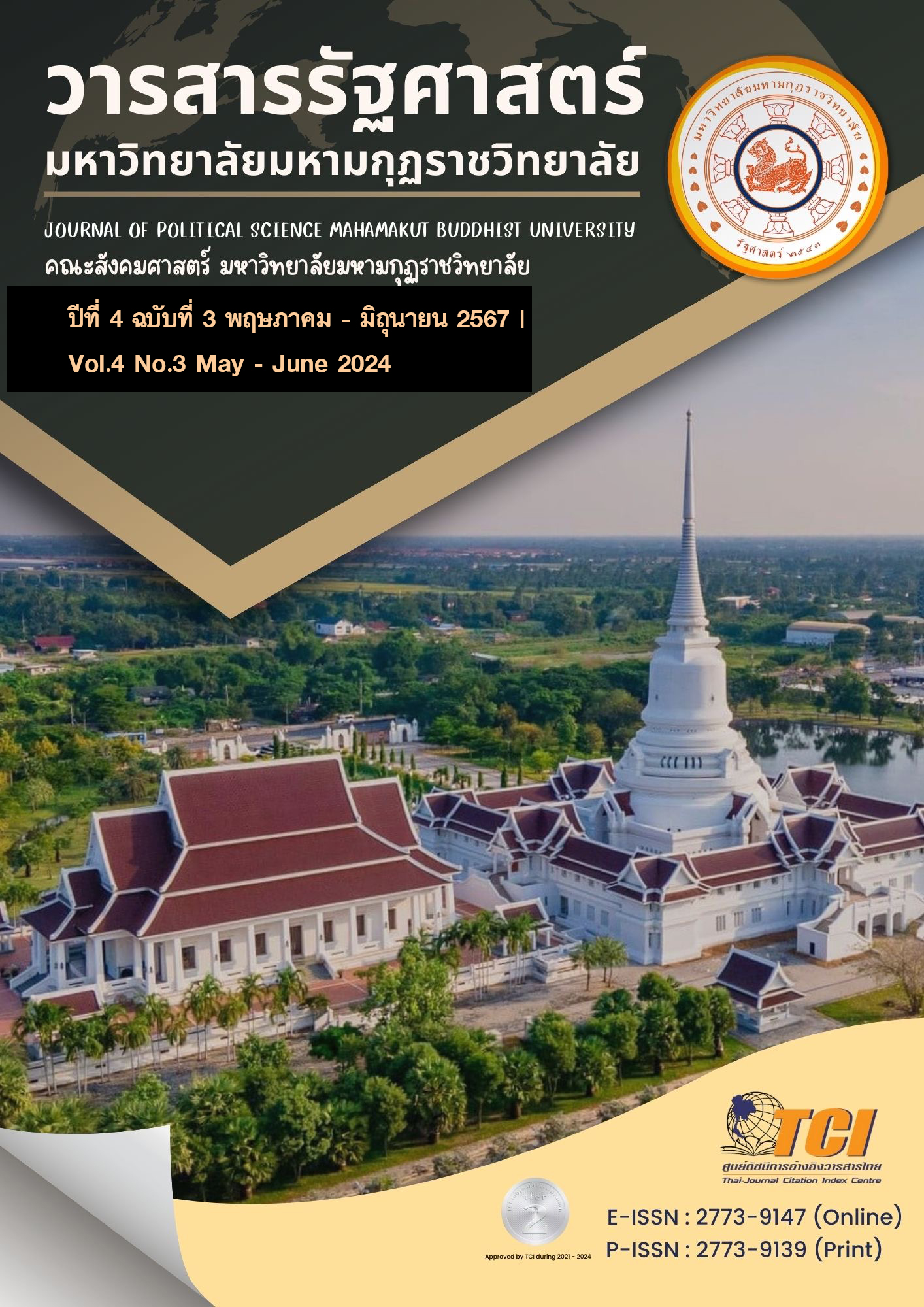ZERO WASTE MANAGEMENT OF HUAHIN MUNICIPALITY
Main Article Content
Abstract
The three objectives of this study were to (1) evaluate the effectiveness of Zero Waste Management of Huahin Municipality, (2) compare the effectiveness of Zero Waste Management of Huahin Municipality Classified by personal factors, (3)test the correlation between public participation factors and the effectiveness of Zero Waste Management in Huahin Municipality. This was quantitative research and was conducted by studying 398 residents living in Huahin Municipality. The data were collected using the questionnaires, the statistics for data analysis consisted of frequency, percentage, mean, t-test, one-way ANOVA and Pearson’s product moment correlation coefficient. The research findings showed that : (1) the effectiveness of Zero Waste Management of Huahin Municipality was at a high level, (2) the comparing and contrasting the effectiveness of zero waste management of Huahin Municipality. classified by personal factors, was found that the sample with different ages, occupations, and incomes had different opinions on the effectiveness of Huahin Municipality's zero-waste management and (3) the correlation between the public participation and the effectiveness of Zero Waste Management in Huahin Municipality was found to be in positive and at the high level.
Article Details

This work is licensed under a Creative Commons Attribution-NonCommercial-NoDerivatives 4.0 International License.
References
กรมความร่วมมือระหว่างประเทศ. (2564). ถอดบทเรียนองค์กรแห่งประโยชน์สุข “เทศบาลเมืองหัวหิน”. เรียกใช้เมื่อ 24 เมษายน 2566 จาก https://www.sepaction.com
กรมควบคุมมลพิษ. (2566). รายงานสถานการณ์สถานที่กำจัดขยะมูลฝอยชุมชนของประเทศไทย ปี พ.ศ. 2565. (อินเตอร์เน็ต).เรียกใช้เมื่อ 20 เมษายน 2566.จาก https://www.pcd.go.th
กรมส่งเสริมคุณภาพสิ่งแวดล้อม. (2559). คู่มือกิจกรรมสิ่งแวดล้อมศึกษา z (H)ero Waste: ปฏิบัติการขยะเหลือศูนย์. กรุงเทพมหานคร: โรงพิมพ์ชุมนุมสหกรณ์การเกษตรแห่งประเทศไทย จำกัด.
กรมอนามัย. (2556). คู่มือแนวทางการบังคับใช้กฎหมายว่าด้วยการจัดการมูลฝอย สำหรับหน่วยงานราชการส่วนท้องถิ่นและเจ้าพนักงานตามกฎหมายการสาธารณสุข. กรุงเทพมหานคร:โรงพิมพ์ชุมนุมสหกรณ์การเกษตรแห่งประเทศไทย จำกัด.
คนึงนิจ ศรีบัวเอี่ยม และคณะ. (2545). แนวทางการเสริมสร้างประชาธิปไตยแบบมีส่วนร่วม ตามรัฐธรรมนูญแห่งราชอาณาจักรไทยพุทธศักราช 2540: ปัญหา อุปสรรค และทางออก นนทบุรี.ในรายงานการวิจัย: สถาบันพระปกเกล้า.
ปิยรัตน์ วงศ์จุมมะลิ และรัดเกล้า เปรมประสิทธิ์. (2560). ของเสียเหลือศูนย์ (Zero Waste): แนวคิดและหลักการสู่สังคมปลอดขยะ. การสัมมนาเครือข่ายนักศึกษาระดับบัณฑิตศึกษา สาขาสังคมวิทยาและมานุษยวิทยา. พิษณุโลก: มหาวิทยาลัยนเรศวร.
ลลิดา กิ่งกัน. (2559). การบริหารจัดการขยะมูลฝอยขององค์กรปกครองส่วนท้องถิ่น อำเภอเมืองสระแก้ว จังหวัดสระแก้ว. ใน รายงานการวิจัย.วิทยาลัยการบริหารรัฐกิจ มหาวิทยาลัยบูรพา
วิทยา ด่านธำรงกูล. (2546). การบริหาร. กรุงเทพมหานคร: โรงพิมพ์เธิร์ดเวฟ เอ็ดดูเคชั่น จำกัด.
สมัย พงษ์ด้วง. (2554). การจัดการขยะมูลฝอยแบบมีส่วนร่วมของประชาชน กรณีศึกษาชุมชนในเทศบาลตำบลบัวงาม อำเภอเดชอุดม จังหวัดอุบลราชธานี. ใน วิทยานิพนธ์ รัฐประศาสนศาสตรมหาบัณฑิต, สาขาวิชาการบริหารการพัฒนาท้องถิ่น บัณฑิตวิทยาลัย. มหาวิทยาลัยราชภัฏอุบลราชธานี
Cohen, J.M. and Uphoff, N.T. (1977). Rural development participation: concepts and measures for project design, implementation and evaluation. New York: Cornell University.


